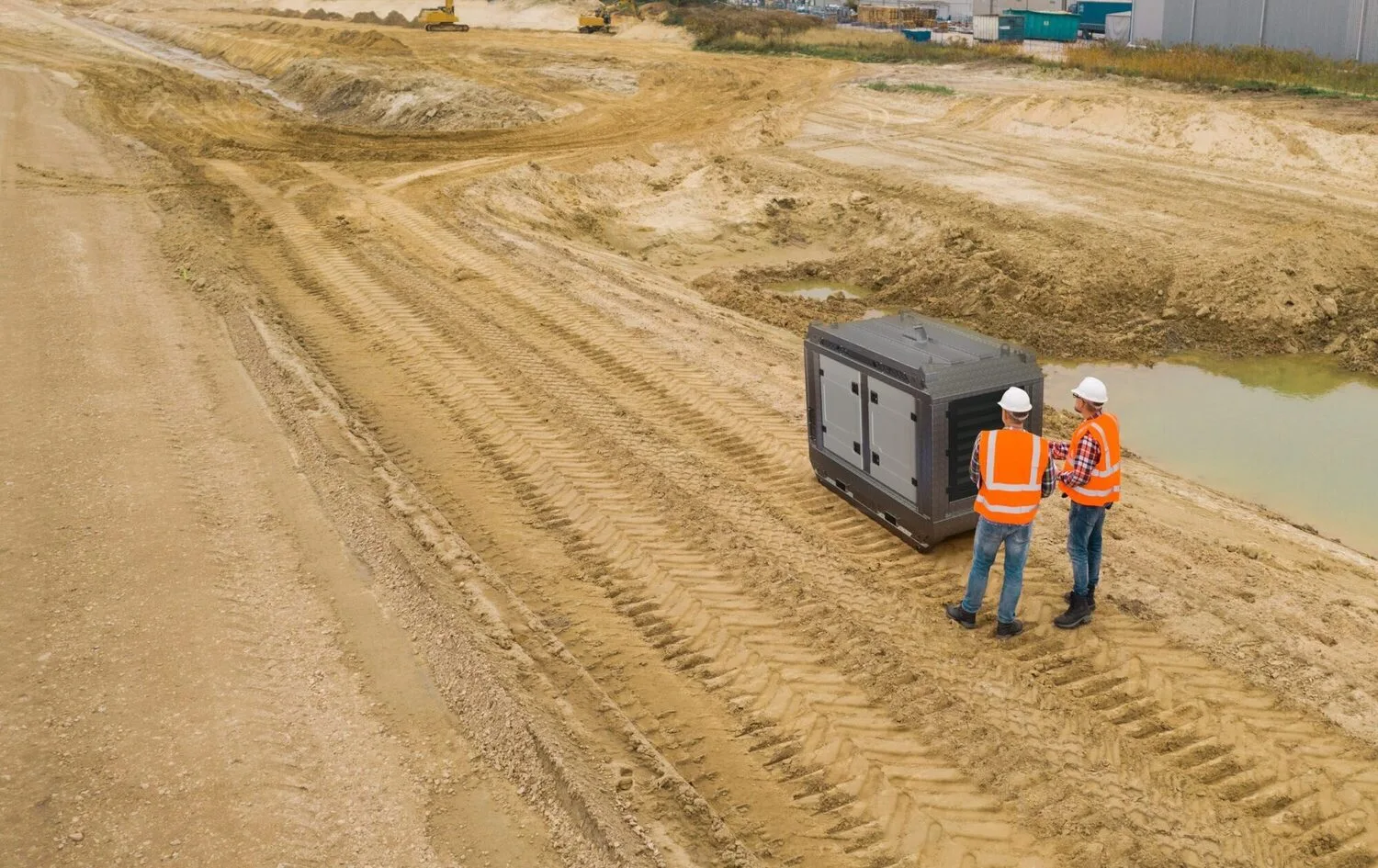Choosing between an electric pump and a diesel pump is quite challenging. They are both attractive options. However, the differences are clear. You just need to pay attention to the requirements of your project.
For example, you can’t use an electric pump on a site that doesnt have electric power. And even if there is electric power, it might still be better to use a diesel pump instead. Once again, it all depends on your project.
Fortunately, this article will explore everything you need to know about electric vs diesel pumps.
Electric vs. Diesel Pumps: What Are They?
Electric and diesel pumps are two popular types of dewatering pump systems. They differ primarily in their energy source.
Electric Pumps: These pumps are powered by electricity. Electric pumps are usually easier to maintain, quieter, and more environmentally friendly due to their lack of exhaust emissions. They are generally preferred in areas where electrical supply is readily available.
Diesel Pumps: Diesel pumps make use of diesel fuel for power and are commonly employed in remote areas or sites where a constant supply of electricity is unavailable. Compared to electric pumps, they are more rugged and capable of higher capacity. However, they are also more expensive to operate and maintain.
7 Key Considerations to Help Choose Between a Diesel and Electric Pump
Here are the seven main factors that you need to consider when choosing between an electric and a diesel pump.
Running Costs
Running costs are critical factors. Electric pumps are cheaper to buy but costlier to operate and maintain. However, it ultimately depends on the differences between diesel and electricity prices.
It also depends on the scale of the project. For small projects, electric pumps are the cost-efficient choice. For large projects, diesel pumps are more cost-efficient to operate. So, in this regard, there is no clear winner. It depends on energy prices and project scale.
Power and Flow
Diesel pumps are more rugged than electric pumps. They also have more horsepower. They are designed to handle high flow rates and substantial loads.
This makes diesel pumps ideal for heavy-duty use in large construction sites or industrial dewatering projects. After all, they have a higher horsepower. Therefore, they can handle demanding environments with high volumes of water or thick liquids.
On the other hand, electric pumps are generally more limited in power output. However, they can operate continuously without overheating. Just make sure you choose a pump that has enough firepower. If the task is too much, any pump will overheat.
In general, electric pumps are much more suited to short operating times. If you need long operating hours, choose a diesel pump.
Solids Handling
Diesel pumps are generally the better choice for projects that involve solids or debris. Let’s use construction and mining as examples. There is usually soil, sand, and other solid particles in the water.
Electric pumps can’t handle this. However, diesel pumps can. Their rugged build and higher power capabilities allow them to transport solids and debris-laden water effectively.
Most electric pumps, especially those that are designed for clean water or light-duty applications, may clog or wear out quickly when they are exposed to such materials. Sure, some electric pumps can handle solids. However, they are typically more expensive than and not as strong as diesel alternatives.
Applications
The specific usage most often determines whether an electric or diesel pump is better suited to the job.
Electric pumps are better for urban construction sites and residential areas, but they can also be used in a regulated environment where noise and emissions are a source of concern. Since they run quietly and don’t emit fumes, they are a preferred choice for indoor operations, including sewage systems and potable water systems.
Diesel pumps make sense to be used in off-grid or remote areas where electricity may be unavailable or unreliable. They’re commonly used in agriculture, mining, and disaster recovery efforts where high-flow capabilities and rugged construction are essential. Diesel pumps are also better suited to emergencies where immediate power is needed without the delay of setting up an electrical connection.
Performance
Performance requirements for electric and diesel pumps vary based on the nature of the job. Electric pumps usually have a more consistent performance as they rely on a stable power source. They are capable of running continuously, provided they are appropriately sized and do not need excessive power.
Diesel pumps, on the other hand, while offering higher horsepower, may experience fluctuations due to fuel variations and environmental factors. However, in many cases, diesel pumps outperform electric options for high-intensity operations due to their power output and durability.
Maintenance & Service
Maintenance requirements also play a significant role in the choice between electric and diesel pumps. Electric pumps generally have fewer moving parts than diesel pumps, thereby reducing the need for frequent servicing. This simplicity leads to lower maintenance costs over the pump’s life and makes them suitable for operations where minimal downtime is critical.
Diesel pumps, on the other hand, require regular maintenance, which includes oil changes, filter replacements, and fuel checks. This quality makes them more time-consuming to service. Diesel engines are also prone to wear and tear in the long run, particularly in demanding applications, which can add to operational costs. However, their construction model allows them to be repaired and maintained in the field.
Regulations
While you are selecting a pump, it is essential to consider relevant regulations in your community, particularly concerning emissions and noise.
Electric pumps are often favoured in areas with strict environmental controls, such as urban or residential zones, due to their zero-emission operation and low noise levels. They also comply more easily with global emissions standards, making them a sustainable option for regulated areas.
Diesel pumps face stricter emission regulations, particularly for applications within city limits or near residential spaces.
Summary
When deciding between electric and diesel pumps, consider factors like running costs, power, solids handling, maintenance needs, and regulatory constraints.
Electric pumps offer quieter, low-maintenance, and environmentally friendly operation. Therefore, they are ideal for regulated areas and back-to-back duty applications. Diesel pumps provide high power, ruggedness, and flexibility, making them suitable for heavy-duty or remote applications without access to a power grid.
Finally, your decision on which pump to use should reflect the intended use for the pump, available resources, and regulatory requirements.


